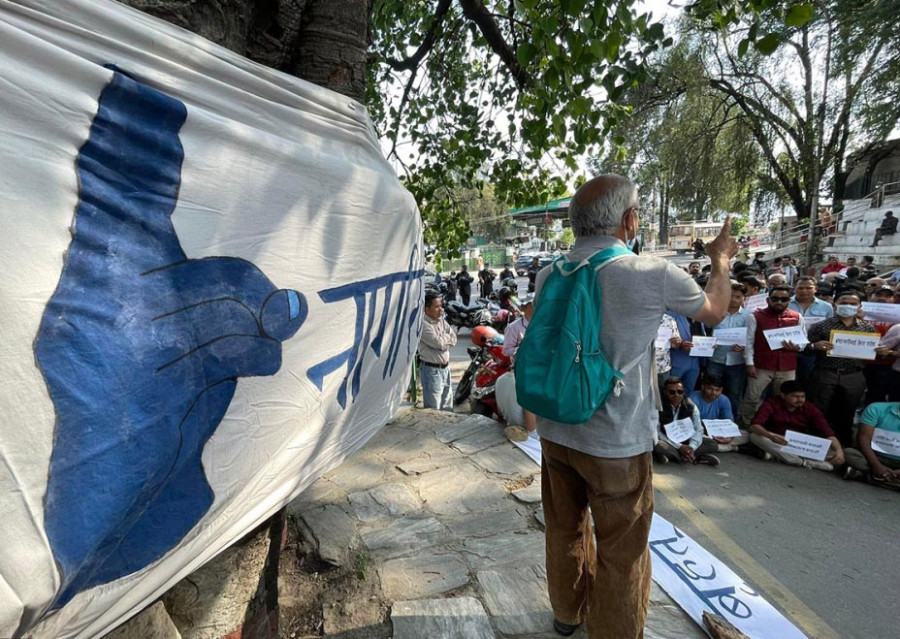Editorial
Civil society rises again
It can articulate larger public demands while moderating the more extremist voices in the crowd.
The civil society members have taken to the streets again. The latest reason for their outrage is the unfolding fake Bhutanese refugee scam, in which hundreds of Nepali citizens have been swindled of millions of rupees on the false promise of sending them to the United States as Bhutanese refugees. On Wednesday, a civil society group staged a demonstration at Bhadrakali, in front of Singha Durbar main gate, asking for a thorough investigation.
Academics, poets, artists, writers, actors, activists and commoners gathered demanding good governance and an end to lawlessness. Eighty-year-old Hira Timalsena was one of them. He came to Singha Durbar from Suryabinayak in Bhaktapur for the protest. He personally knew none of the civil society members gathered there. But Timalsena, originally from Udaypur district, still couldn’t stop himself from coming after he saw a social media post on the civic event. He wanted to join out of a sense of outrage against the corrupt politicians and bureaucrats who have over the past few decades greatly impoverished the country. The octogenarian is a representative of millions of Nepalis who are greatly dismayed by corruption in high places.
Nepal isn’t in a war. Nor is it in the middle of a big natural disaster. But even in normal times, Nepalis have been grappling with multitudes of problems, mostly related to mismanagement, corruption, bad governance and lawlessness. As they get more desperate, they are likely to resort to drastic measures like violent protests to let out their frustration. This is where members of the civil society step in. Their high integrity and social standing draws crowds. They can articulate the larger public demands while moderating the more extremist voices in the crowd. There is thus no better tool than a powerful civil movement to correct social anomalies—and that is how it should be in a functioning democracy.
The civil society usually operates as a loose network of eminent persons. The broadly trusted faces help establish important agendas and increase their acceptability. Fortunately, we still have some eminent personalities whom people readily trust and follow. Those who don't want to be indoctrinated cadres but still want to fight against social anomalies can (and do) follow their lead. Nepal’s civil society has historically played an important role, for instance in the establishment of the federal republic in 2006. It has also time and again raised its voice for good governance and for better public health and education systems.
Nepalis have repeatedly used peaceful methods of protests to get their demands fulfilled. This is an encouraging sign for a country that emerged from a decade-long Maoist insurgency and subsequently witnessed anarchy of various armed groups. Many campaigns led by civic groups have yielded results. Recently the government signed an agreement with National Innovation Centre chief Mahabir Pun, who staged a sit-in at Maitighar demanding a conducive environment for the promotion of innovation and entrepreneurship. Before that, a government team signed a deal with agitating loan-shark victims.
For months the country has been reeling under a serious financial crisis. Prices of daily commodities are constantly increasing and many are now struggling even to pay for basic health and education services. In this situation, their blood must boil when they see those occupying some of the highest state offices using means fair and foul to enrich themselves. It is vital that the civil society, as the society’s collective conscience, gives a proper channel to this sense of frustration even as they keep up the pressure on the government to get to the root of the refugee scam. If the past is any guide, their efforts will not go in vain.




 13.12°C Kathmandu
13.12°C Kathmandu














